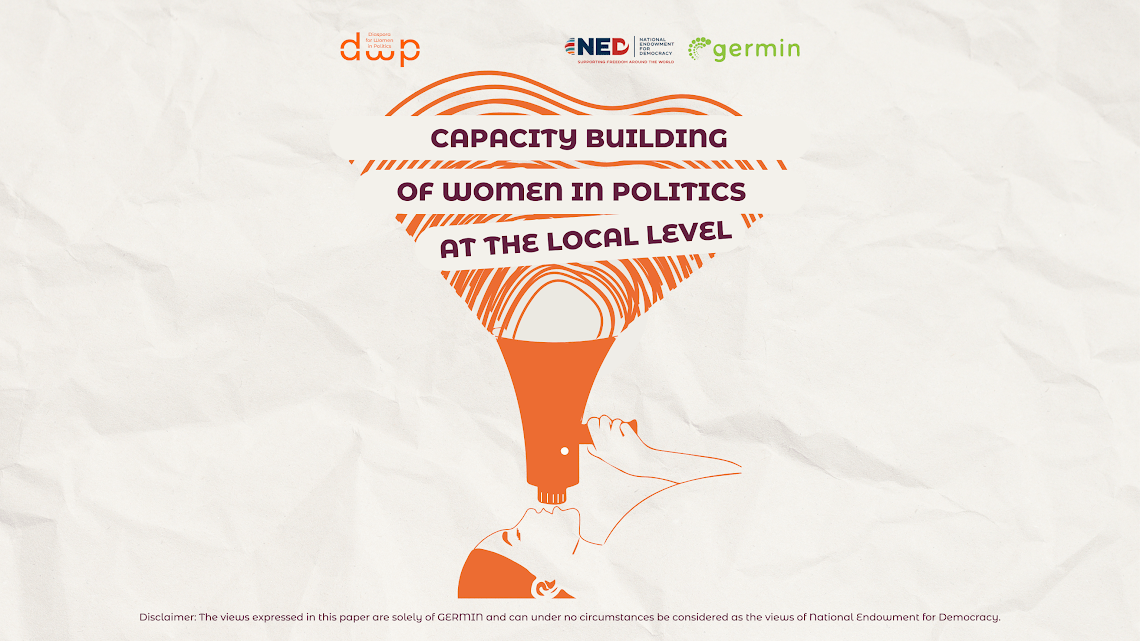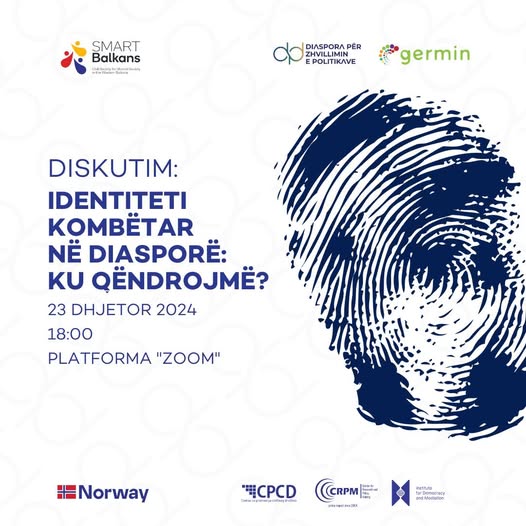During the period of October 2022 until October 2023, GERMIN has implemented the project “Diaspora for Women in Politics”, which aimed to address the lack of substantial and qualitative representation of women in local-level politics in Kosovo. Specifically, the project`s main goal was to empower 52 elected and prospective elective women from Shtime, Istog, Vushtrri, Suhareka, Lipjan, Rahovec, and Podujevë by building their capacities in key areas of interest, connecting and fostering mutual learning relationships between them and Kosovo diaspora members engaged in politics in developed countries and other activities.
- Project Achievements and Impact
Through this project, GERMIN utilized its vast network in the diaspora and engaged influential and knowledgeable Kosovo diaspora members involved in politics at local, regional, or national levels.
Women’s political engagement, particularly at the local level, remains a significant challenge in Kosovo. This challenge is exacerbated when working with smaller municipalities, where the patriarchal mindset is more deeply ingrained. Typically, political parties tend to include women in their electoral lists only during election periods to fulfil the mandatory gender quota requirements. This, in turn, further hinders women’s active engagement in politics on a broader scale within Kosovo.
In the municipalities that were the focal point of our project, we were fully cognizant of the difficulty in achieving all our numerical targets. However, this did not render the project unworkable. Although we initially aimed to involve 52 women in the project, GERMIN extended deadlines, conducted meetings with political parties, and made multiple attempts via email and phone to encourage participation.
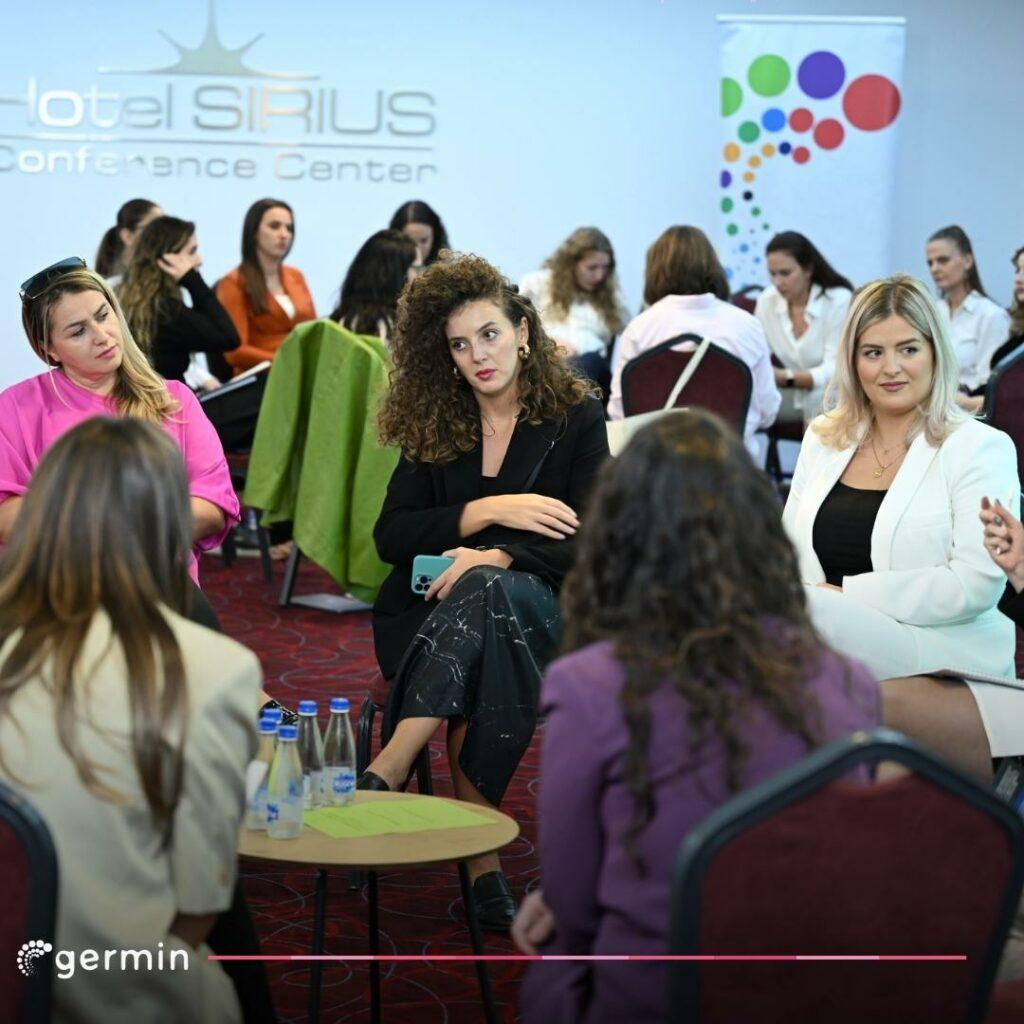
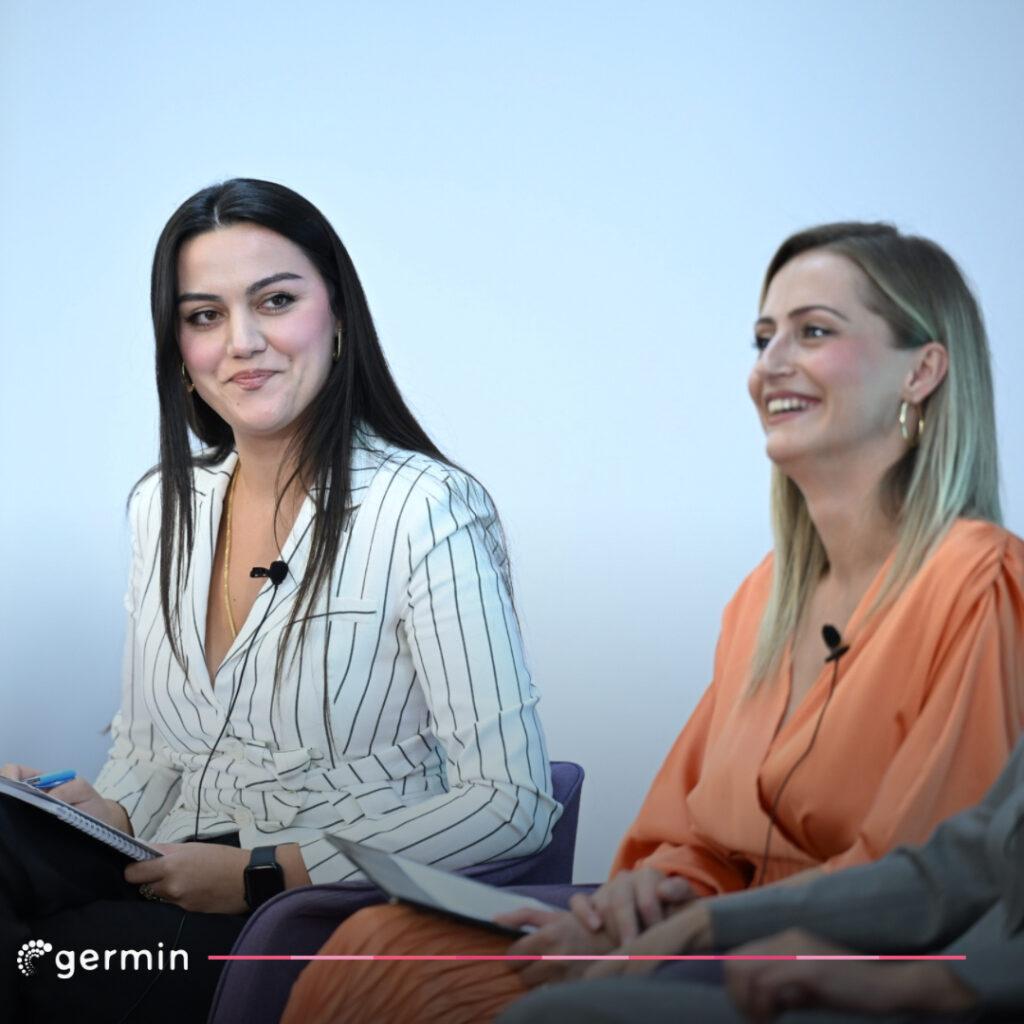
- During the project implementation, the main achievements were as below:
- Compilation of a comprehensive database of over 300 women in politics from the targeted municipalities and political parties.
- Compilation of a database of over 80 diaspora professionals who can serve as mentors for the project.
- We have successfully engaged 26 mentors from 14 highly developed countries (such as the USA, Germany, Switzerland, the UK, France, Sweden, etc.), fostering robust connections with their respective political institutions. This inspiring collaboration has given mentees a unique opportunity to share experiences and knowledge with these esteemed mentors.
- Closing Conference Highlights
The project was finalized with the closing conference, which revealed women’s engagement in politics at the local level and mentors from the diaspora, in the one-year project supported by the National Endowment for Democracy. The event started with the opening speech of Mss Sihana Bejtullahu, Co-Executive Director of GERMIN, the fourth President of the Republic of Kosovo, Mss Atifete Jahjaga and Ms Vera Mjeku, Policy Analyst at the New York City Council.
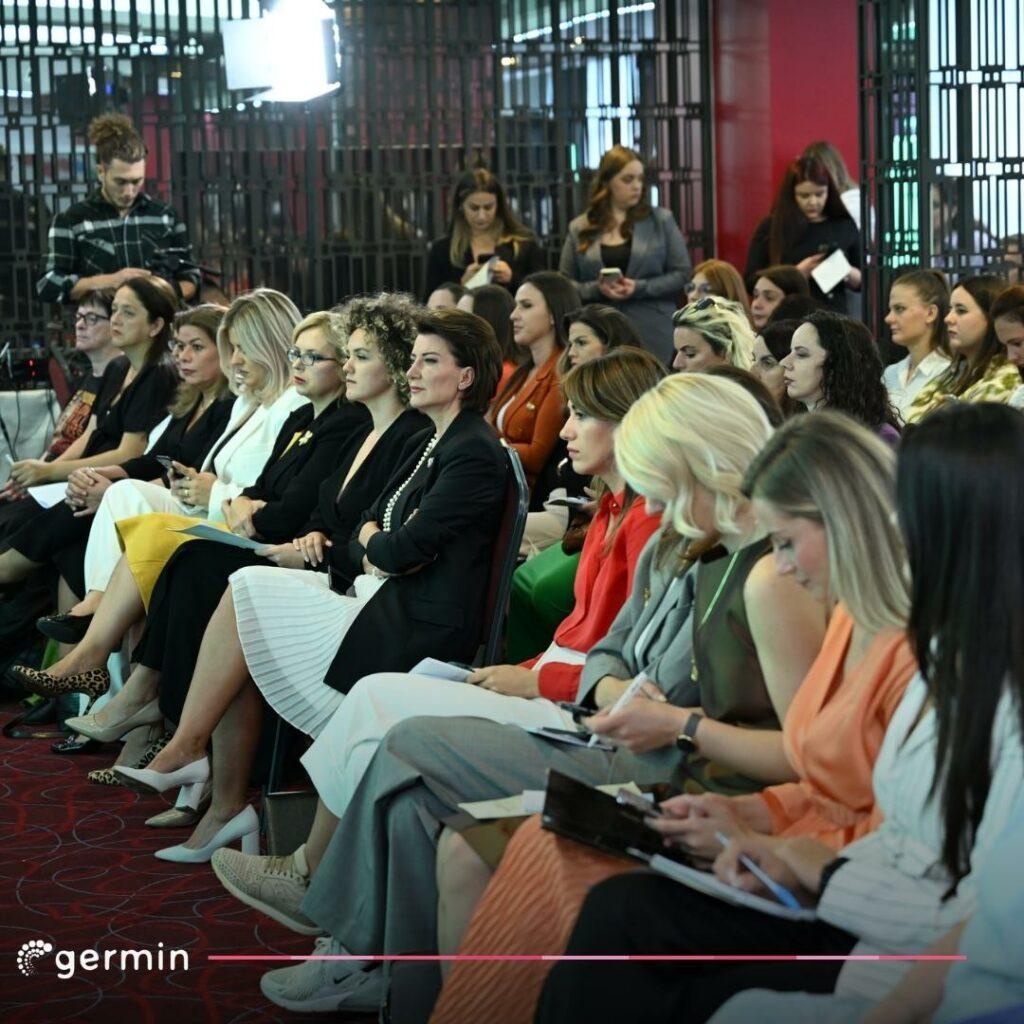
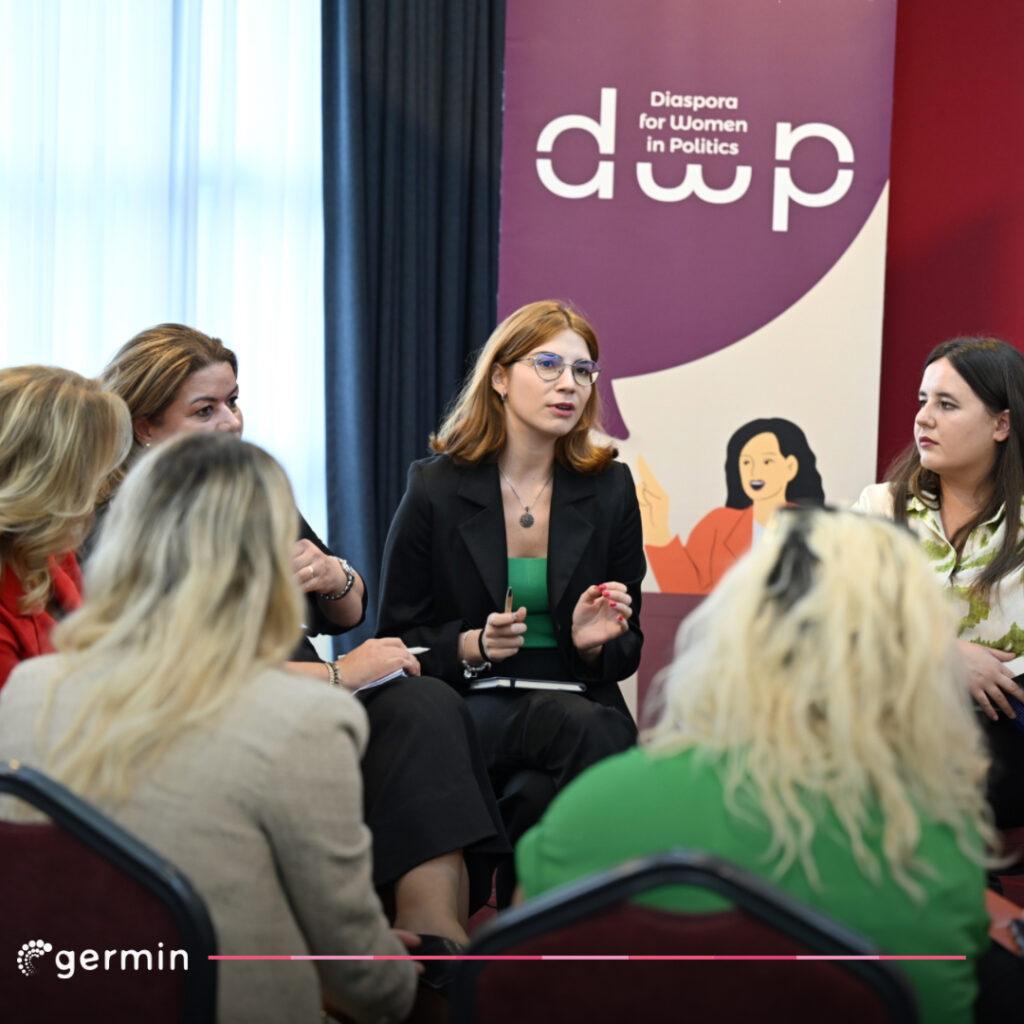
The conference continued with a panel discussion on “From Challenges to Change” that brought together women from different political parties. Part of the panel were: The Minister of Justice of Kosovo, Albulena Haxhiu, and the Vice-President of the Democratic Party of Kosovo, Vlora Çitaku, Vice Chair of the Women’s Forum in the Democratic League of Kosovo, Albulena Mujaj Bajraktaraj, and Diellza Kukaj, Chair of the Women’s Forum in the Alliance for the Future of Kosovo.
In the second part of the “Diaspora for Women in Politics” conference, 3 group discussions were facilitated by diaspora mentors: Kendresa Gerlica, Belgium, Selvete Dibrani Istrefi, Finland and Fatima Zekijiri, Germany.
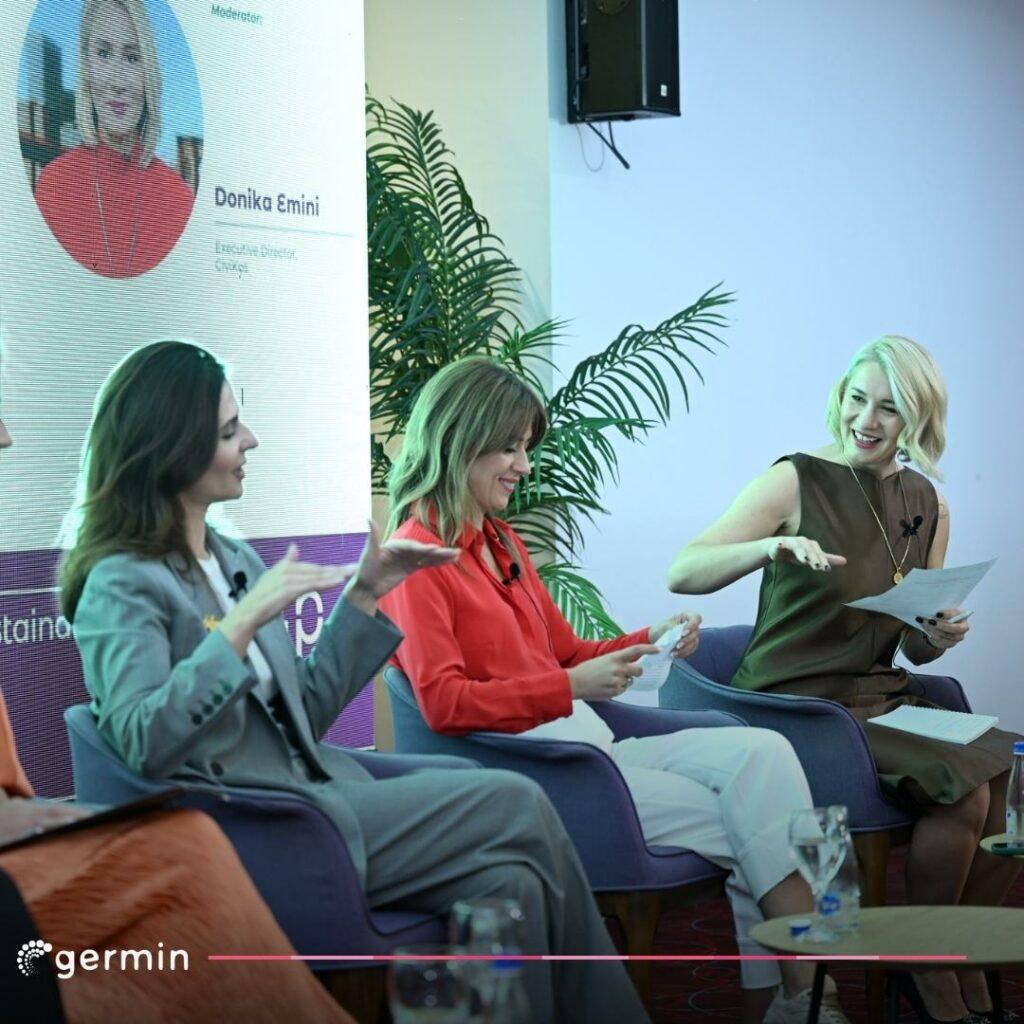
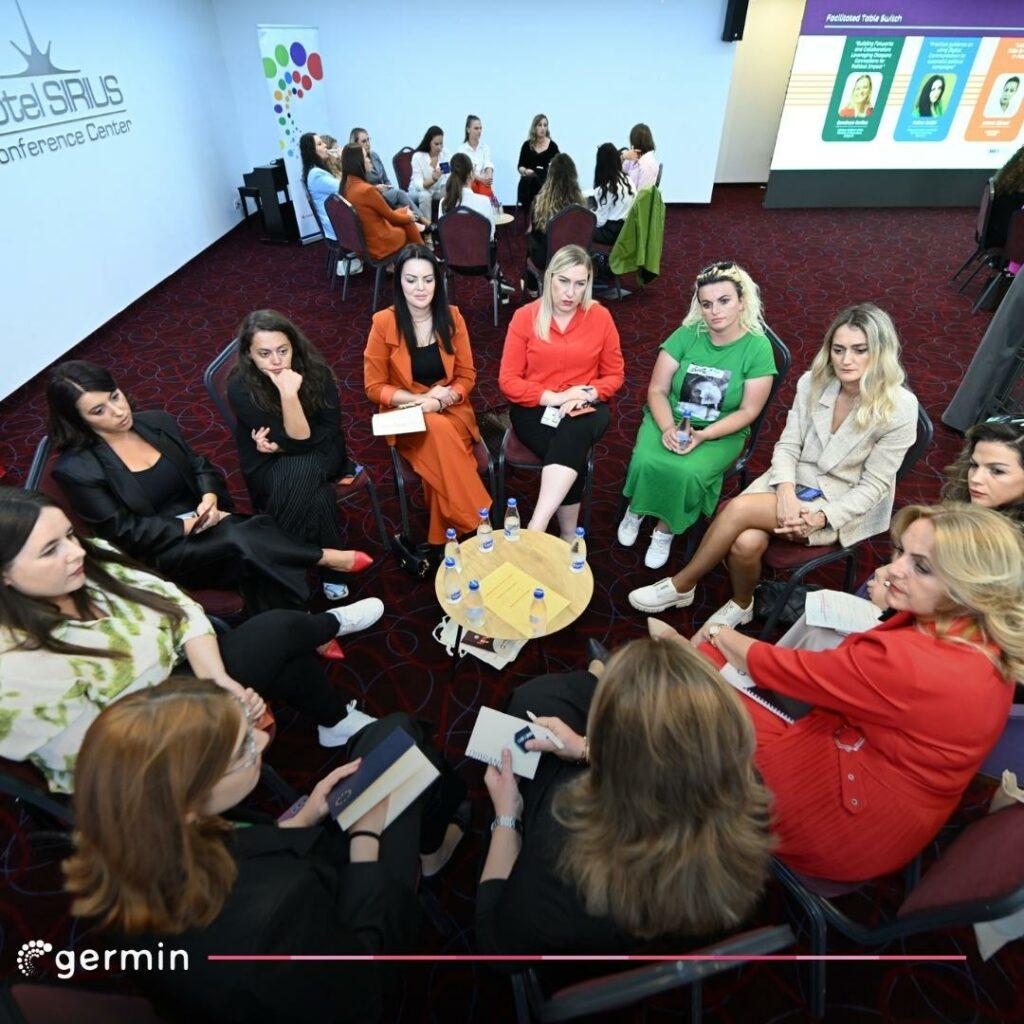
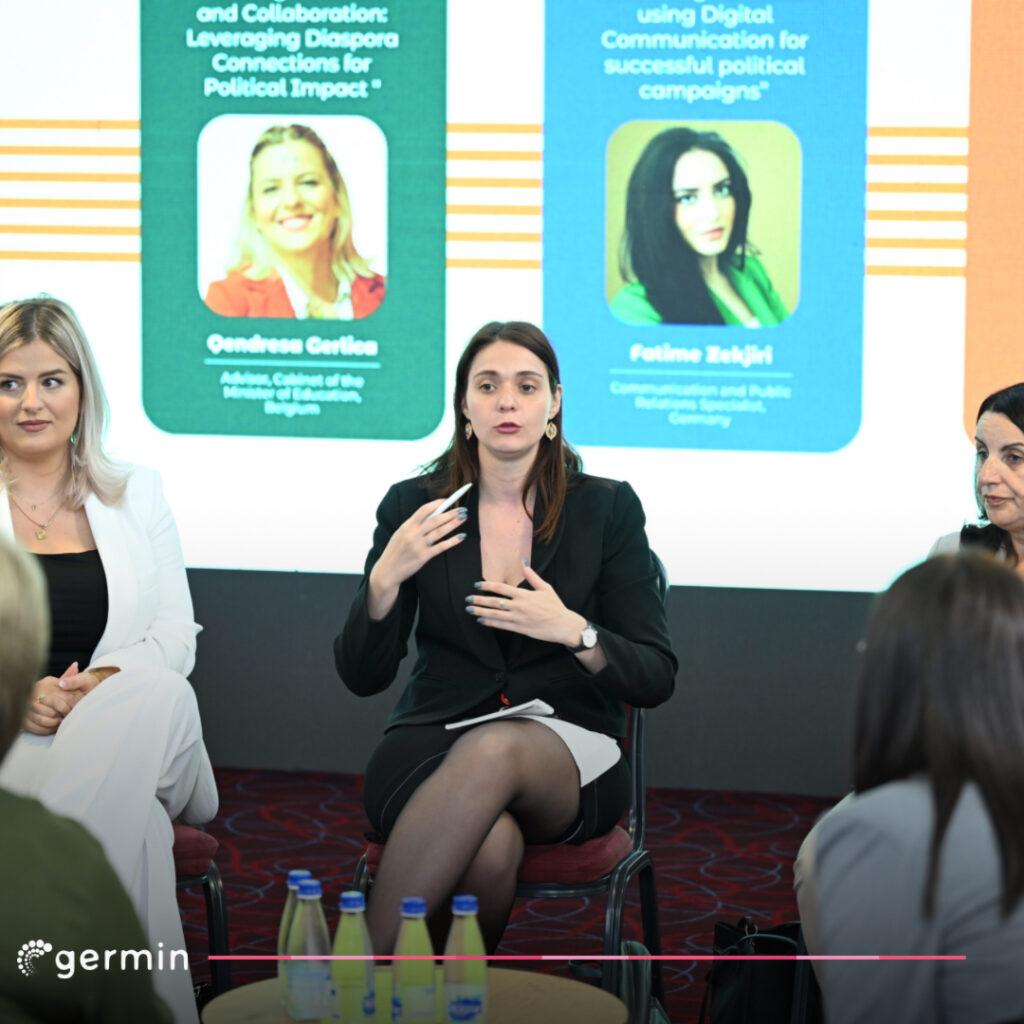
A brief report with the project’s findings was also presented by Diana Morina, an expert on gender issues. The report can be found at this link.
For additional moments and speeches from this conference, click this link to access our Facebook video.
